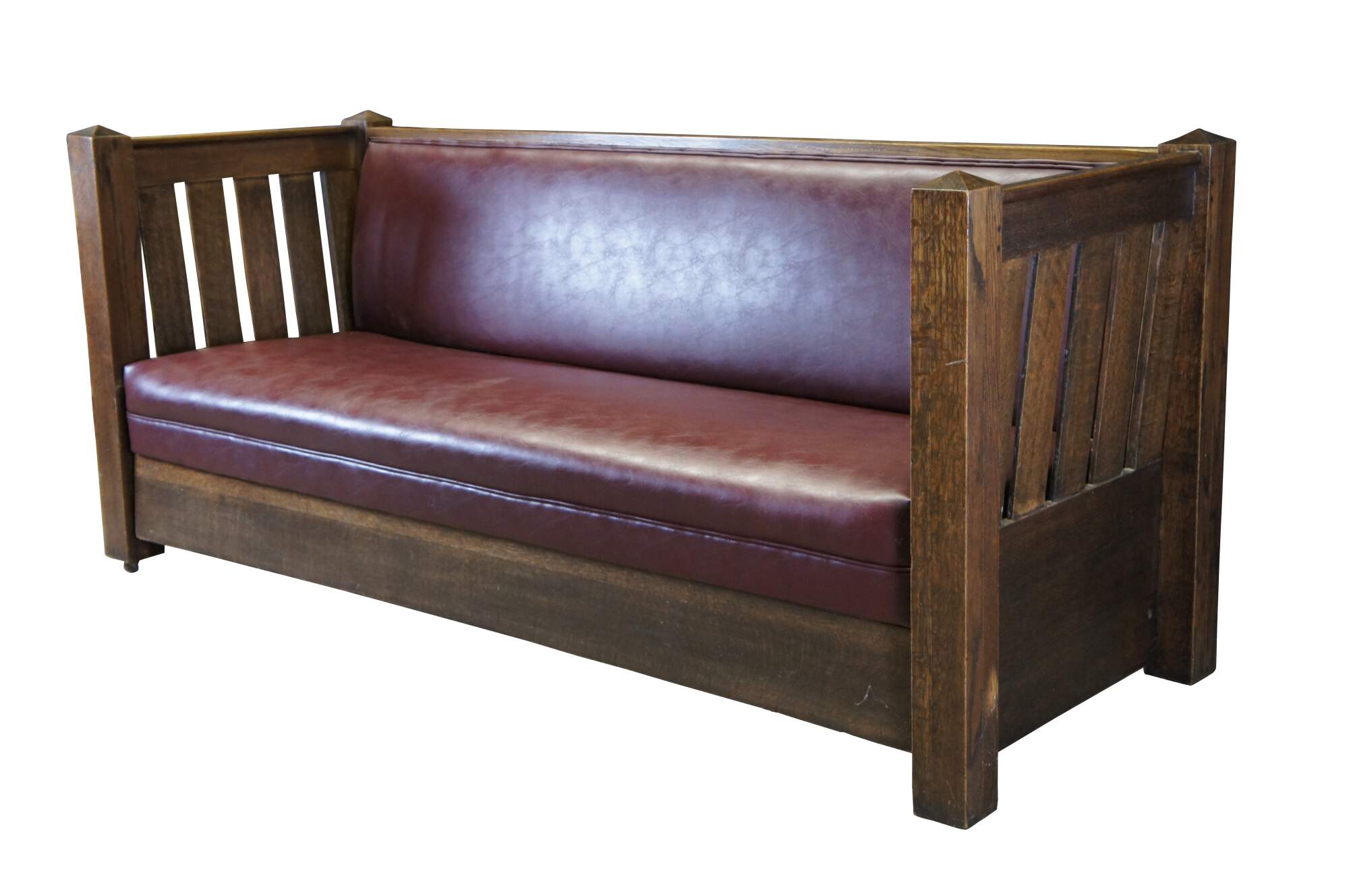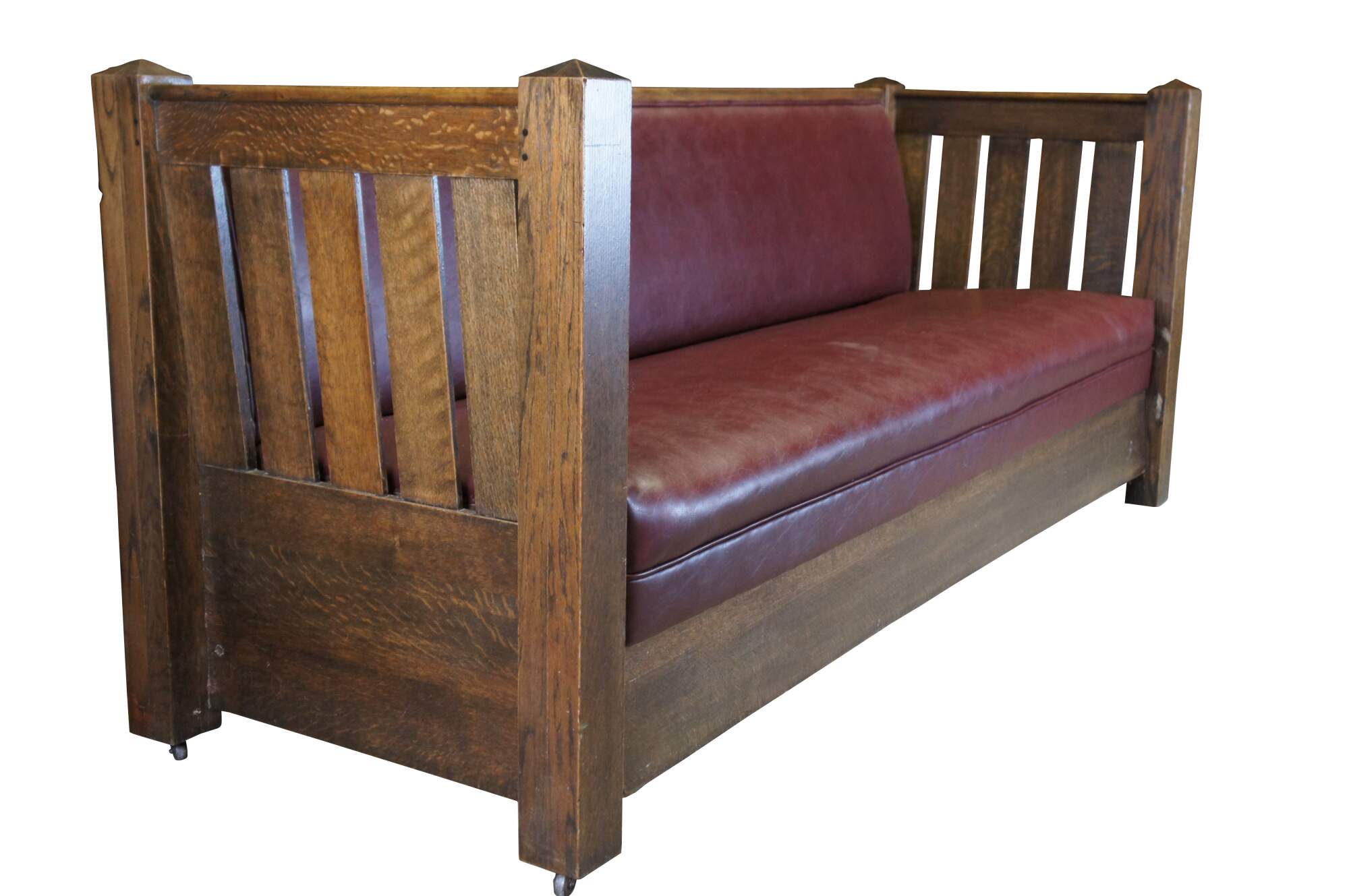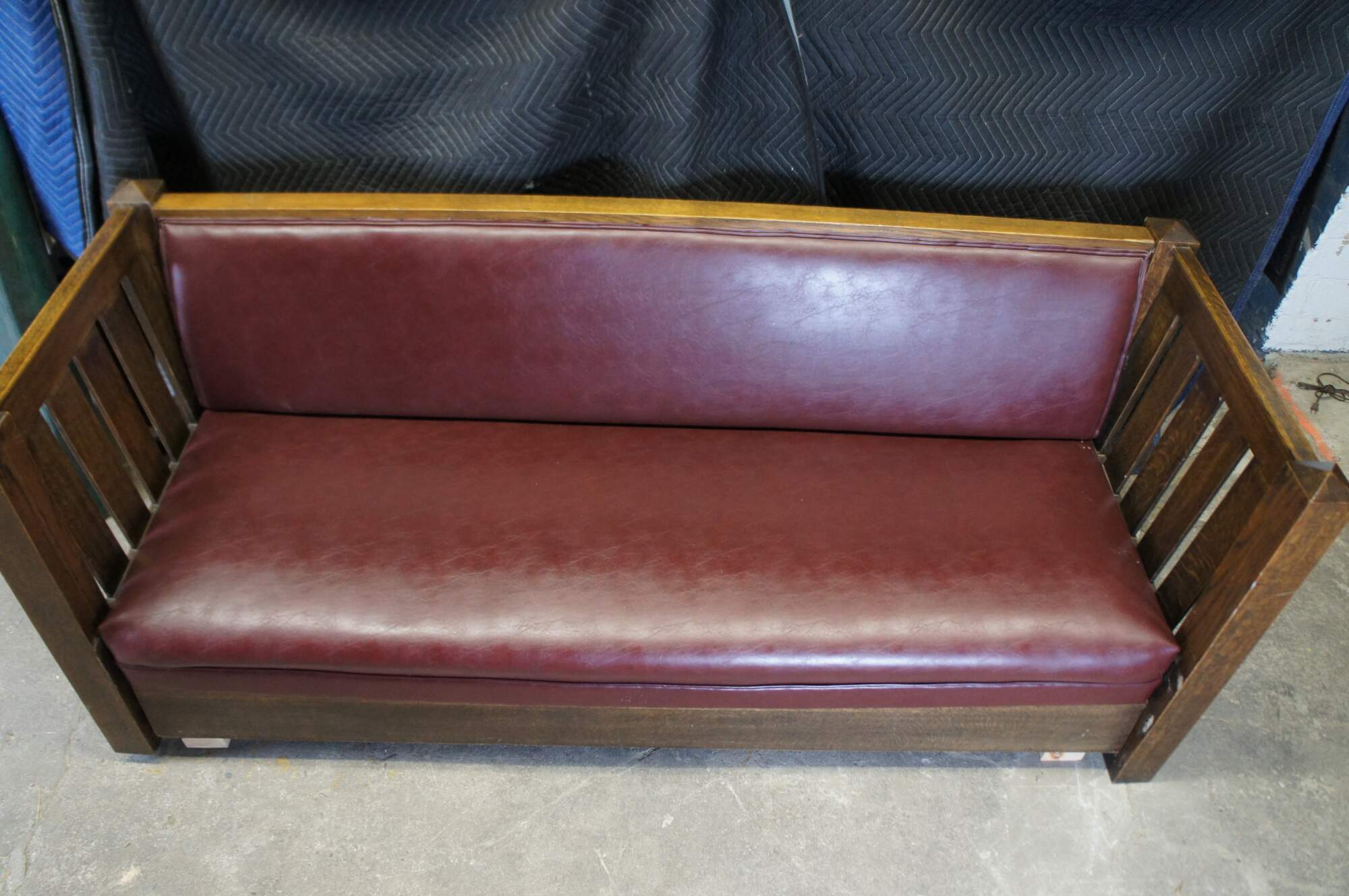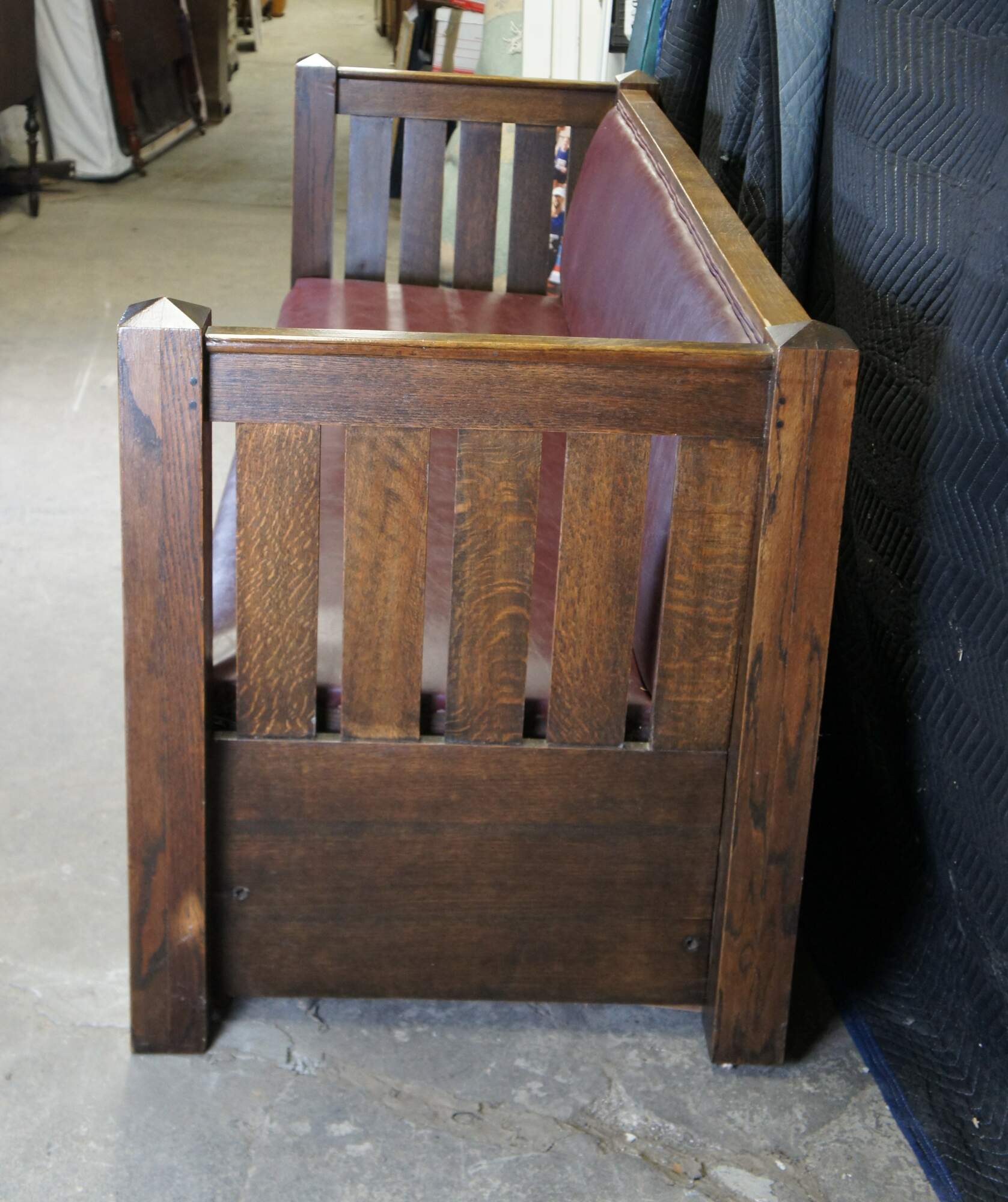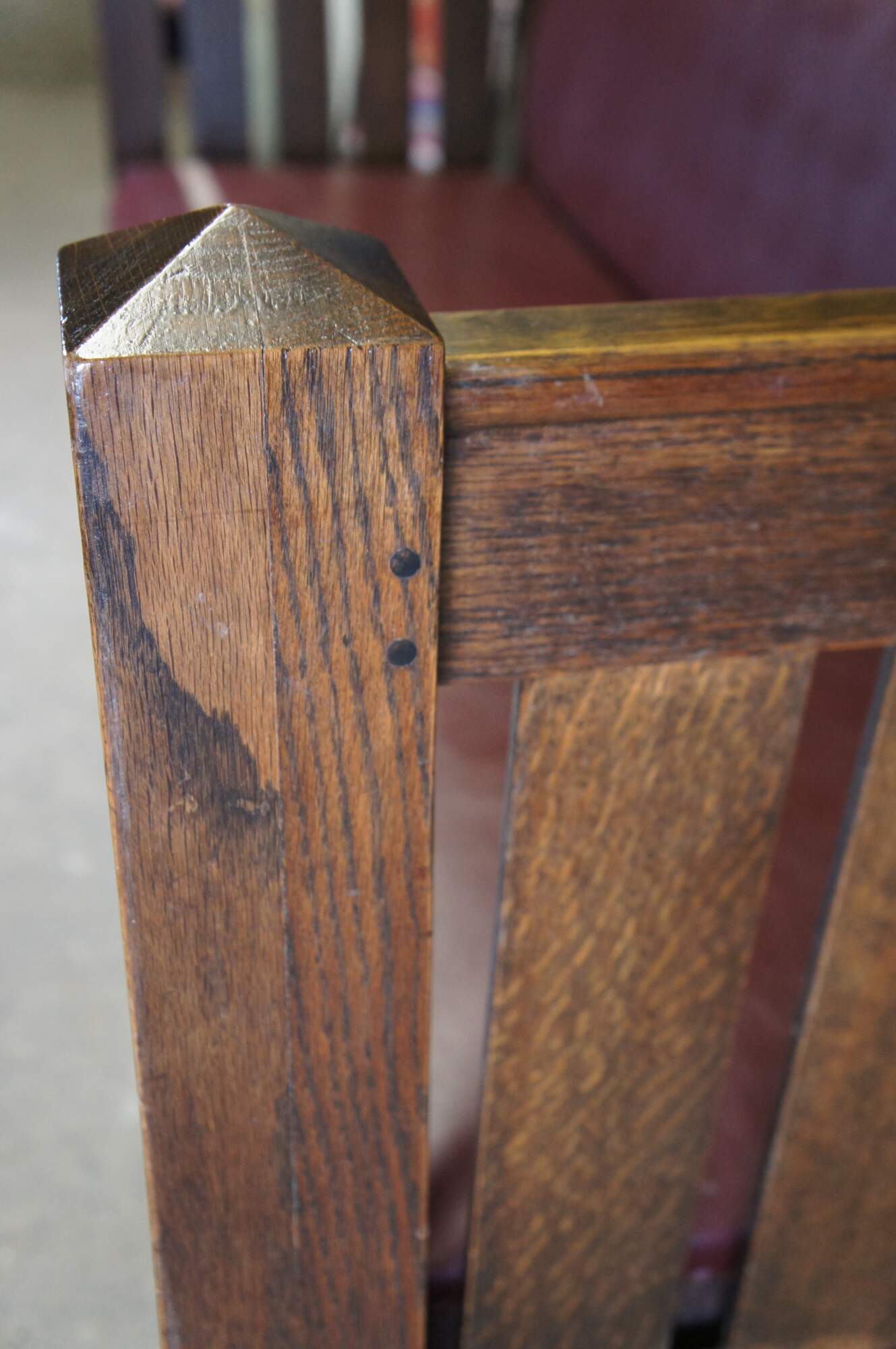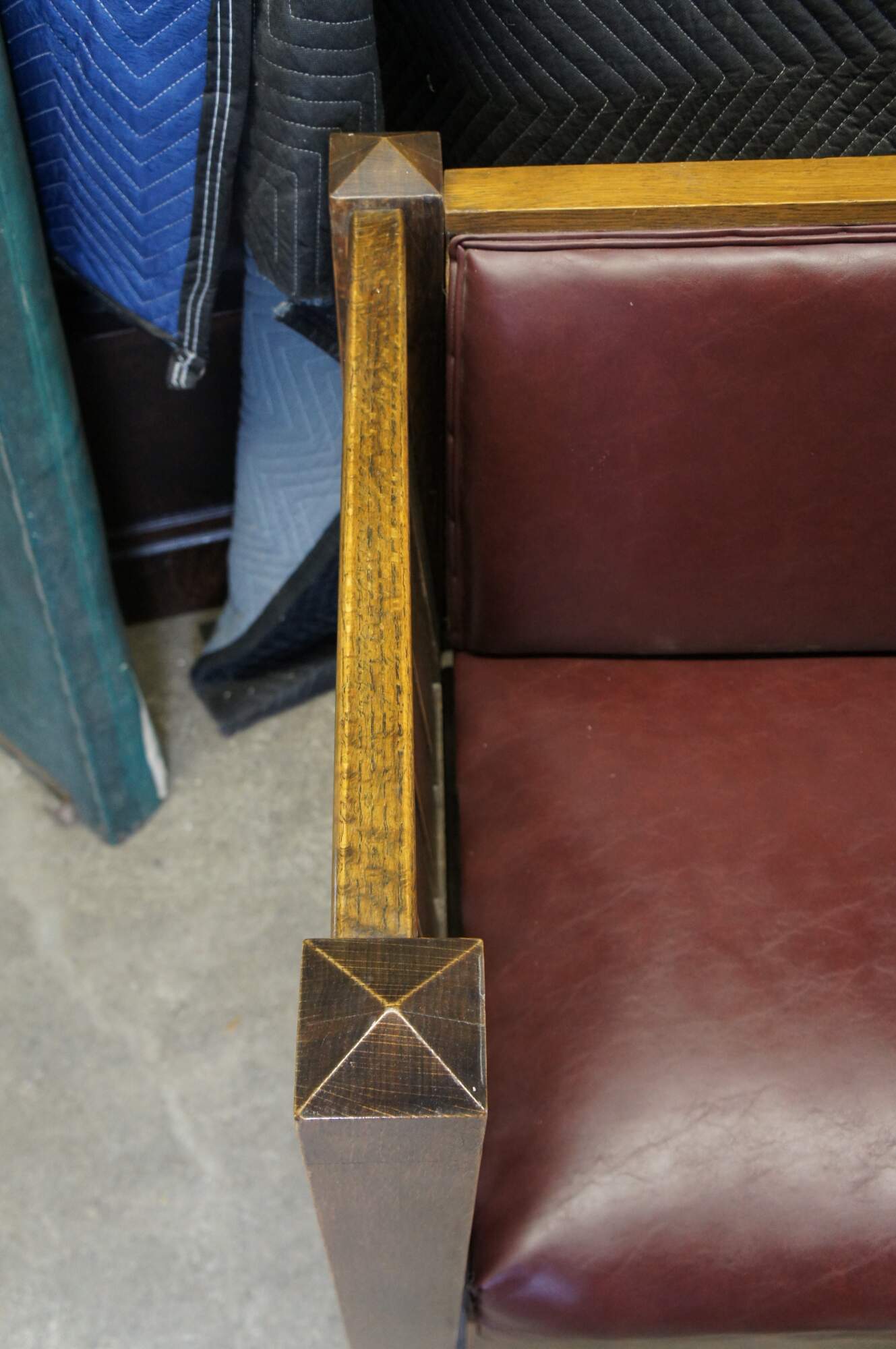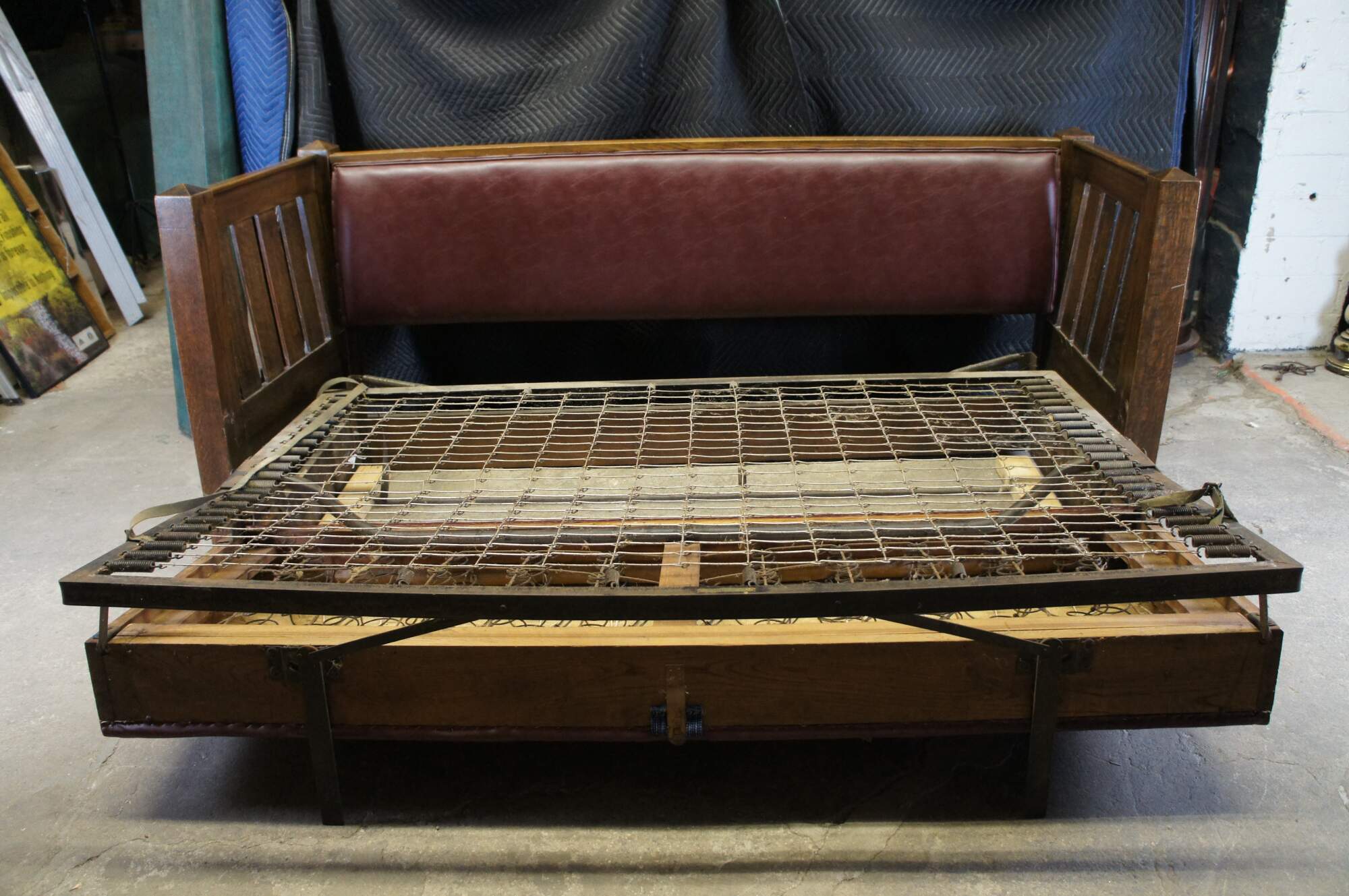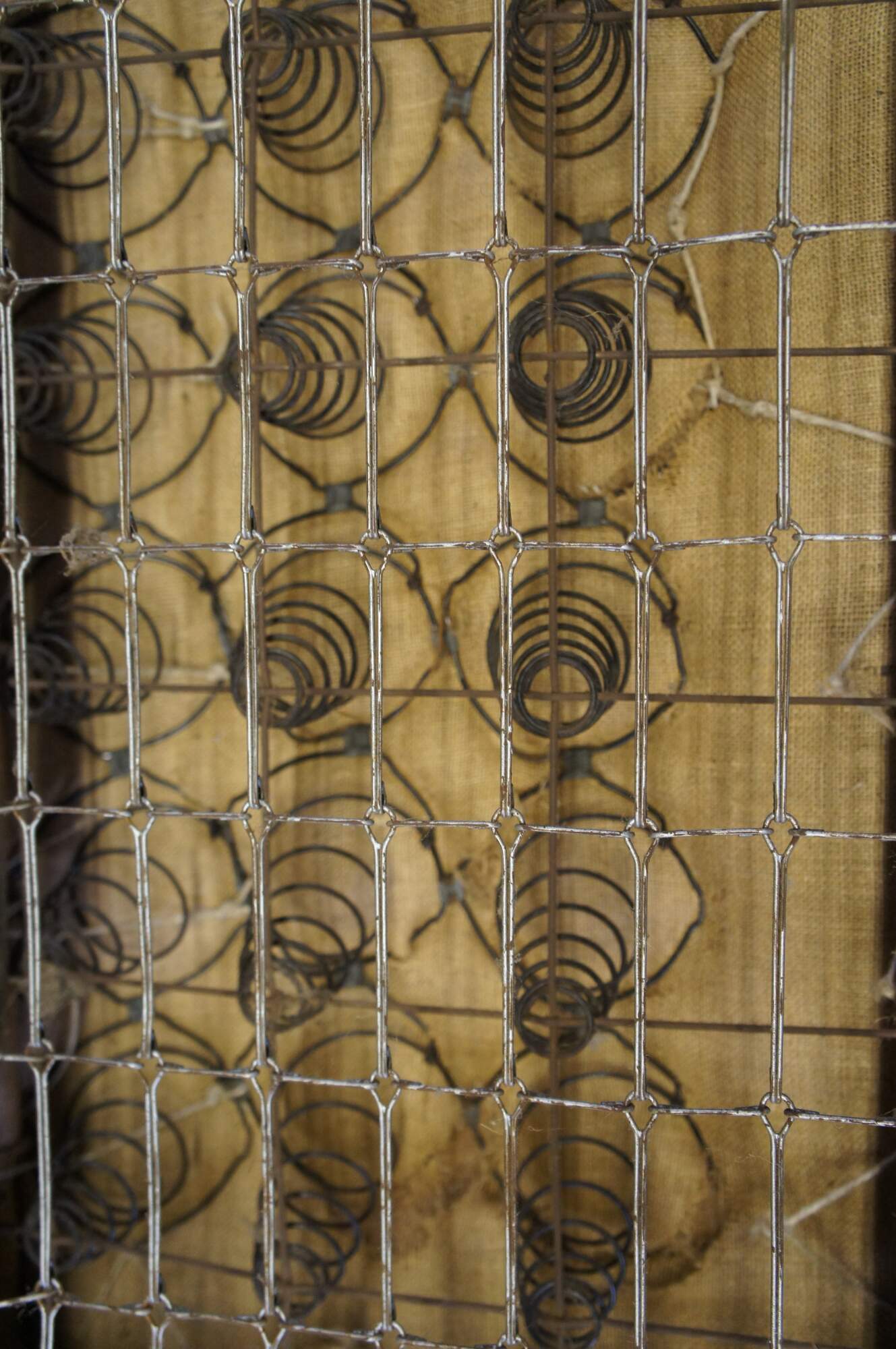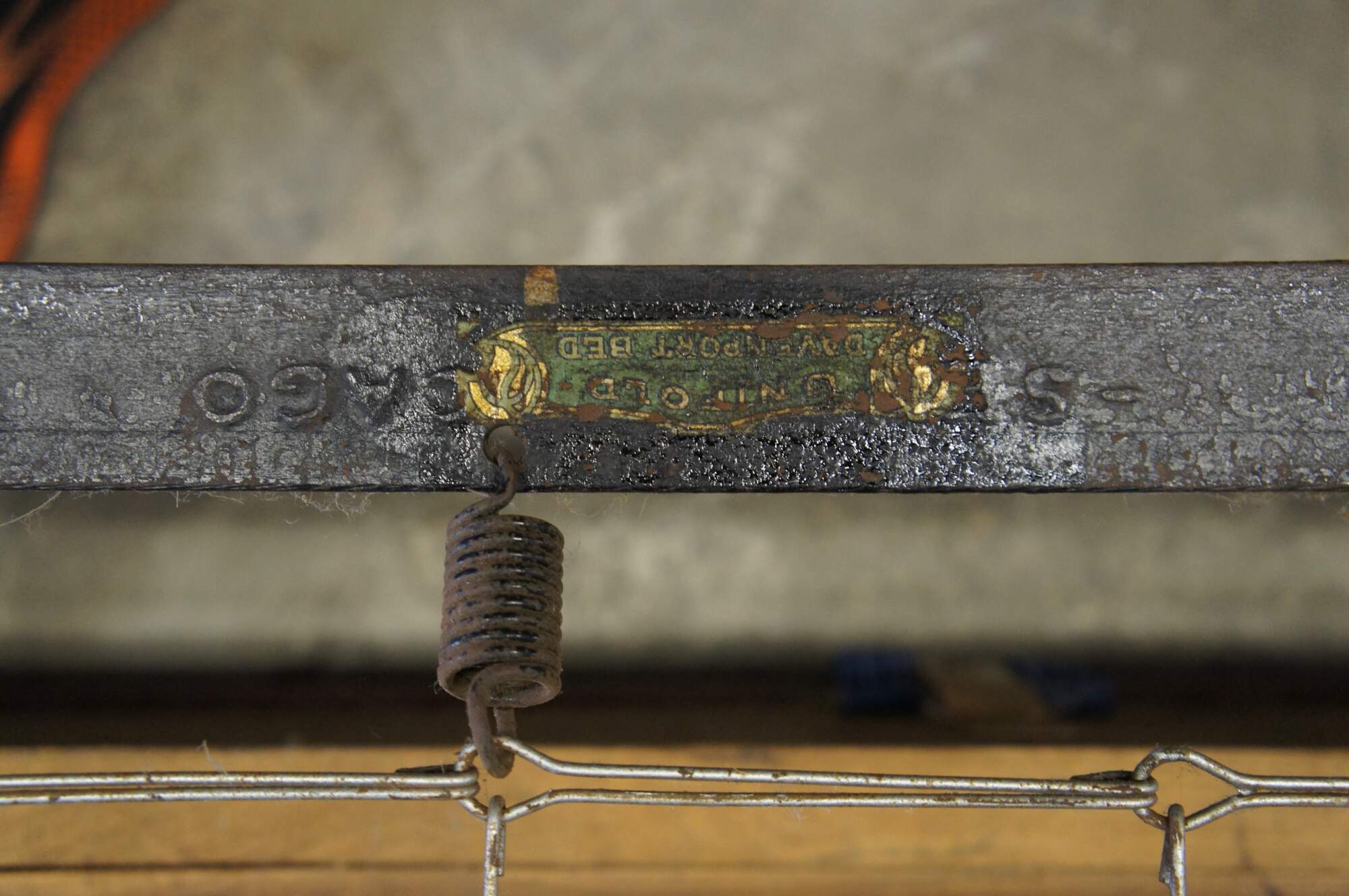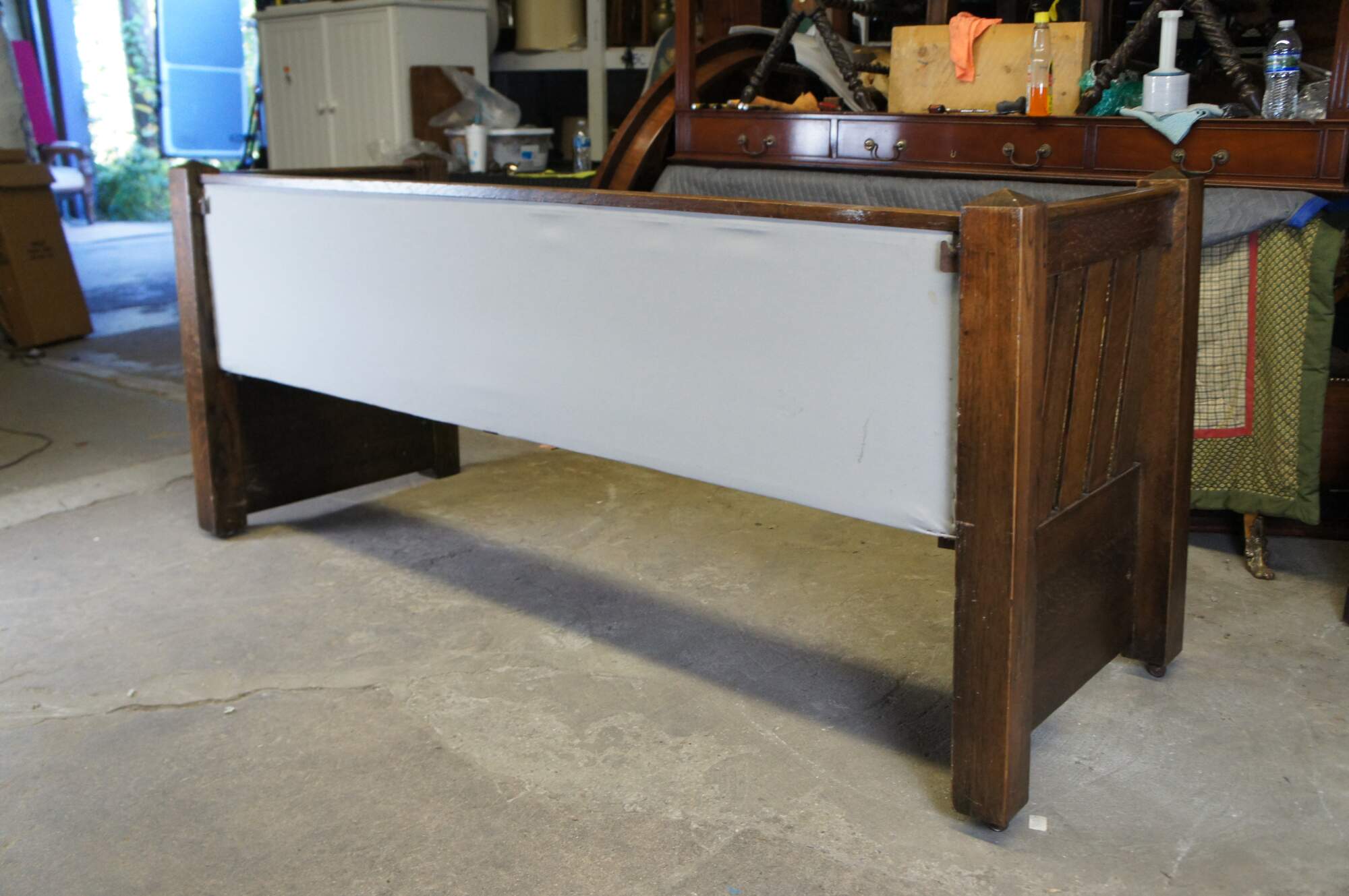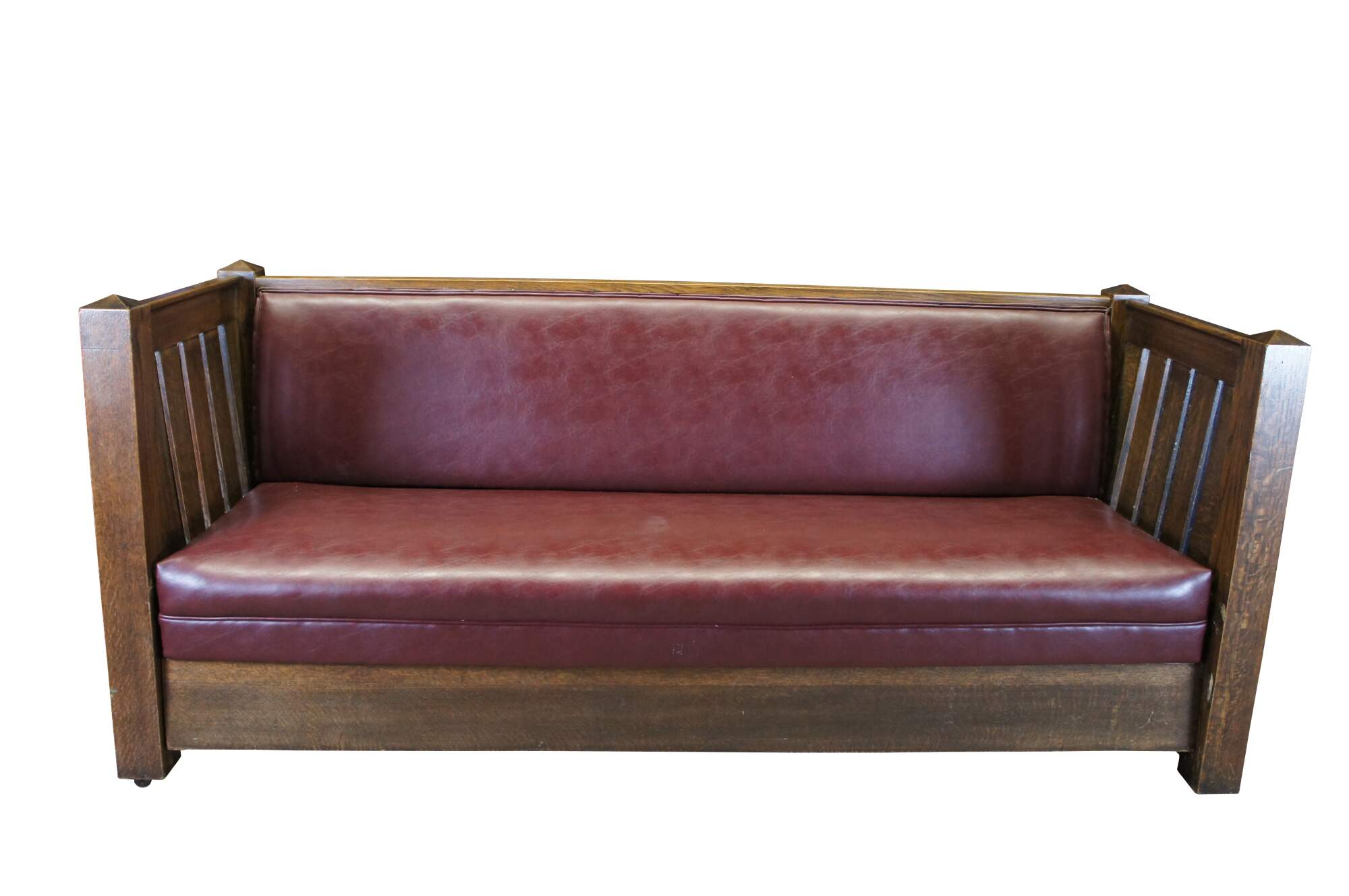
Antique Kroehler Mission Quartersawn Oak Sofa Couch Unifold Davenport Bed
Sold
Shipping:
Free Shipping Included
Delivery:
Estimated 2-15 Business Days
Payments:
Credit Card, Check, Cash, PayPal, Apple Pay, Venmo
Returns:
30 Days 100% Money Back Guarantee, Buyer Pays Return Shipping
Description
Antique Kroehler unifold Davenport sofa / couch / bed. Made of quartersawn oak featuring traditional Mission styling with vinyl upholstery and folding frame for use as a bed or couch. Made in Chicago.
A davenport unifold bed is a folding metal bed frame with a removable mattress. The Kroehler Manufacturing Company patented the Unifold Davenport in 1909, and it became a popular choice for customers. The term "davenport" can also refer to a large sofa that can be converted into a bed. The term originated from the A.H. Davenport & Company, a furniture brand that produced high-end, upholstered sofas for the elite during the Gilded Age. The word "davenport" has since been largely replaced by "sleeper sofa" or "futon", but is still used in some parts of the United States.
In the 1890s, Peter Edward Kroehler transformed a Naperville furniture-making business from the Naperville Lounge Company into Kroehler Manufacturing Company, the world’s largest producer of upholstered furniture and one of the town’s biggest employers. Kroehler moved to Naperville from Minnesota in 1890 to attend North Central College. Soon after graduation, he took a job at the Naperville Lounge Factory. He immersed himself in all aspects of the furniture business including buying raw materials, writing up orders and catalogs, and shipping products to customers. The company operated in small quarters until Kroehler moved the factory alongside the Chicago, Burlington &Quincy Railroad tracks to accommodate his expanding work force in 1887.Innovations in design and marketing fueled the company’s growth. In 1909, Kroehler patented the Unifold Davenport, a folding metal bed frame with a removable mattress that soon became a customer favorite. To publicize its products, the company bought full-color ads in national publications such as the Ladies Home Journal. By 1915, the renamed Kroehler Manufacturing Company had four plants in Illinois and Ohio and capitol stock of over one million dollars. The newly enlarged company transformed its production methods. Previously, a Kroehler upholsterer made each piece of furniture from start to finish by himself, but eventually, all four Kroehler plants implemented section work, where employees did the same job, like turning wire into coils for springs or upholstering the fabrics on the frames, over and over. However, the workers’ greater efficiency could not counteract the effects of the Great Depression in the 1930s, when the market for consumer products declined. Kroehler wisely advertised the quality construction of its furniture to appeal to cost-conscious buyers, and offered incentives to stores to inspire creative window displays and increase sales. Despite the enticements, consumer demand for new furniture remained low and underemployed Kroehler plant workers struggled to get by. History Stories are developed by the Naperville Heritage Society Research Library and Archives staff at Naper Settlement. As a bountiful resource for learning about a variety of topics related to Naperville, they provide unique insights into the past. For more information, please call the Curatorial Department at 630.305.3535.© 2012 Naperville Heritage Society and Naper Settlement. During WWII, rationing and restrictions on raw materials such as the wire and lumber needed to produce furniture affected operations at Kroehler. The company sought contracts from the government for war work, making furniture and filing cabinets for U.S.O. offices, duffel bags and artificial limbs for soldiers. After the war, Kroehler experienced the largest workers’ strike in its history, when more than 2,500 workers protested for higher wages. The strike lasted from August 1946 to January 1947 and cost the company over $1 million. After the death in 1950 of company founder Peter Edward Kroehler, technological changes prompted the development of a new system of production at Kroehler, called the G & L System after the engineers who invented it. Fifteen workers made up a production line, each one making a different part for a particular piece of furniture. All of the workers in a production line then assembled the final product together. By the mid-1950s, Kroehler was delivering 128 truckloads of furniture a day to stores. Smaller profit margins during the 1960s and early 1970s undermined the company’s performance. Operating at a loss, the company closed production at the Naperville plant in1978. After losing millions of dollars, the Kroehler family sold the business to a Chicago investment firm that disposed of the furniture plants and sold off rights to the Kroehler name. In the 1980s, the vacant Kroehler Manufacturing Plant was converted into Fifth Avenue Station, a mixed use complex of 127 apartments, 80,000 feet of retail space and a five-story atrium office consisting of approximately 50,000 square feet. In 1985, the two-square-block complex was placed on the National Register of Historic Places. Commuters riding the Metra trains into Chicago, can still see the Kroehler name on the side of the building, a symbol of a once prosperous business that provided employment to generations of Naperville residents for almost 100 years.
Condition
Fair antique condition, wear and distressing commensurate with age and use, scuffing, fading, no mattress, extremely heavy.
Dimensions
29.5" x 82" x 35"h, seat 17"; bed 46.5" x 72"
